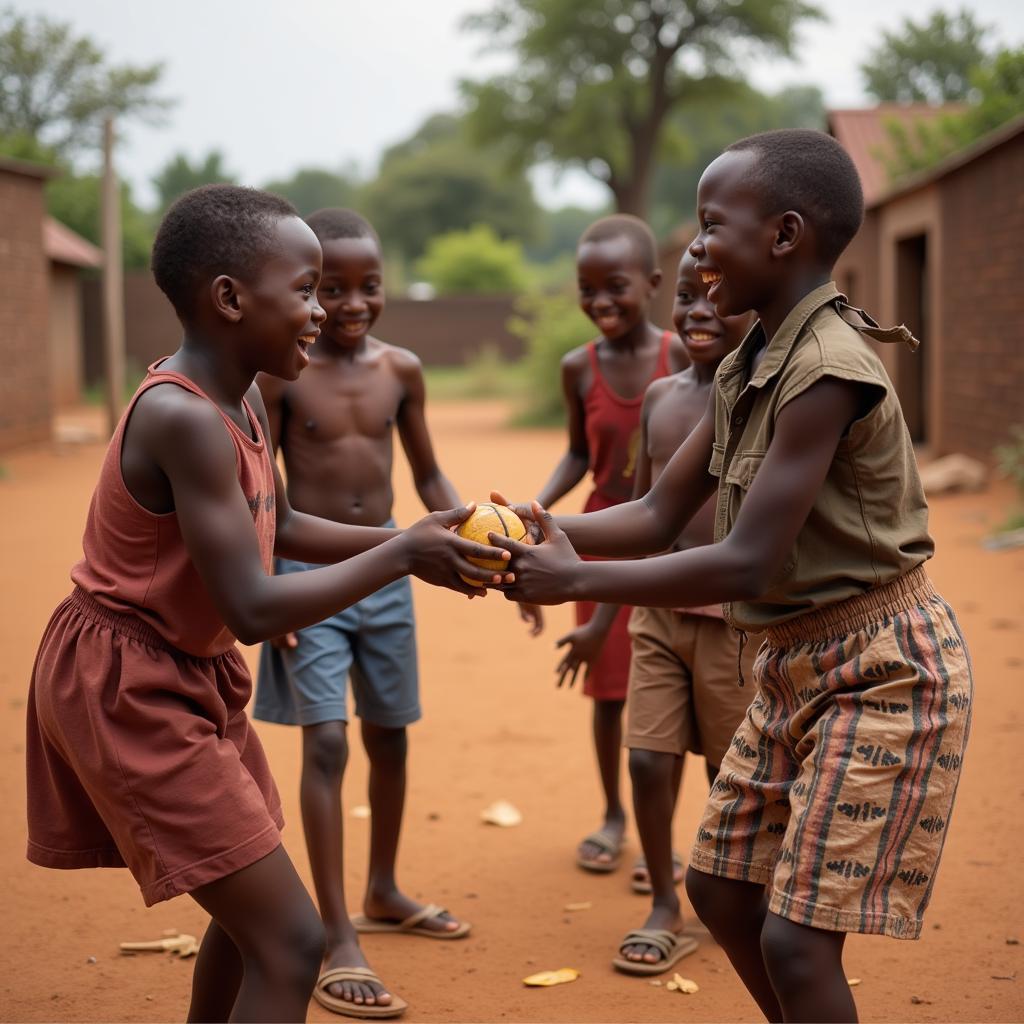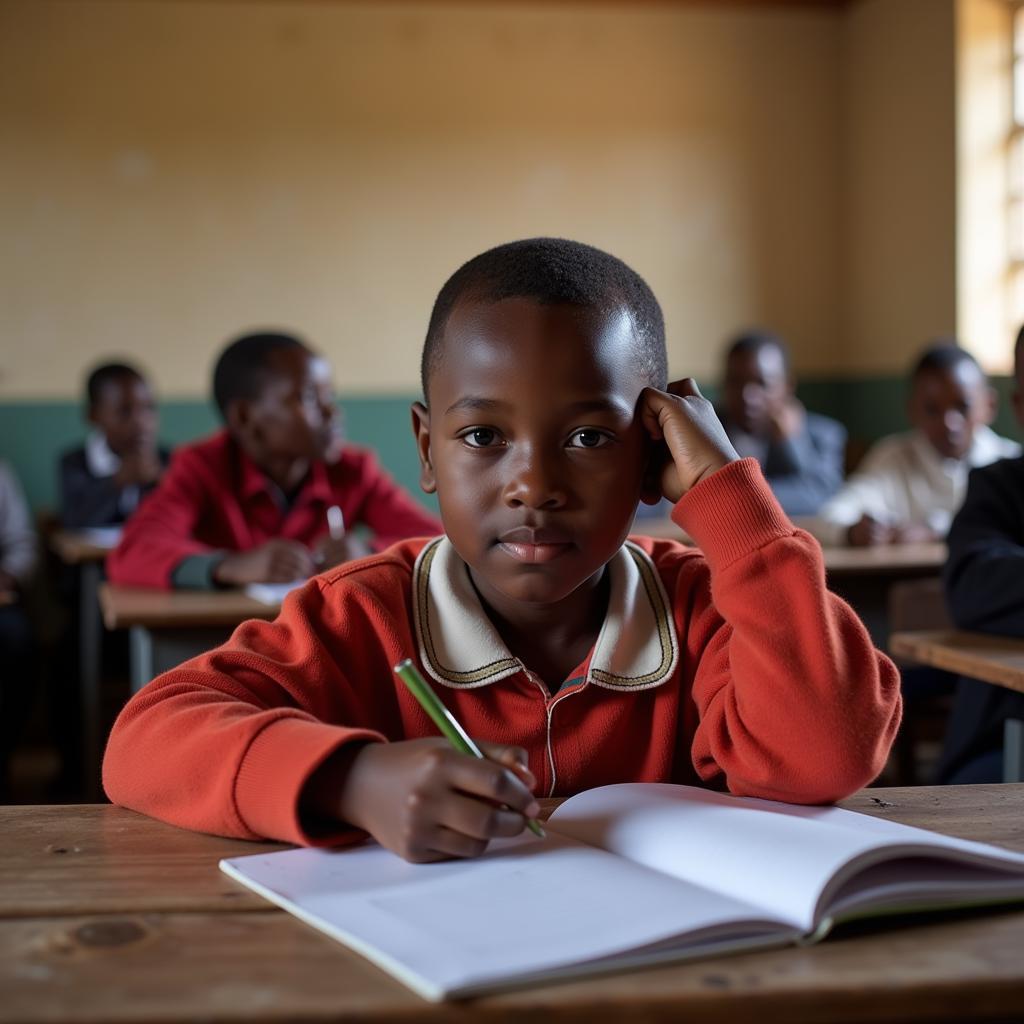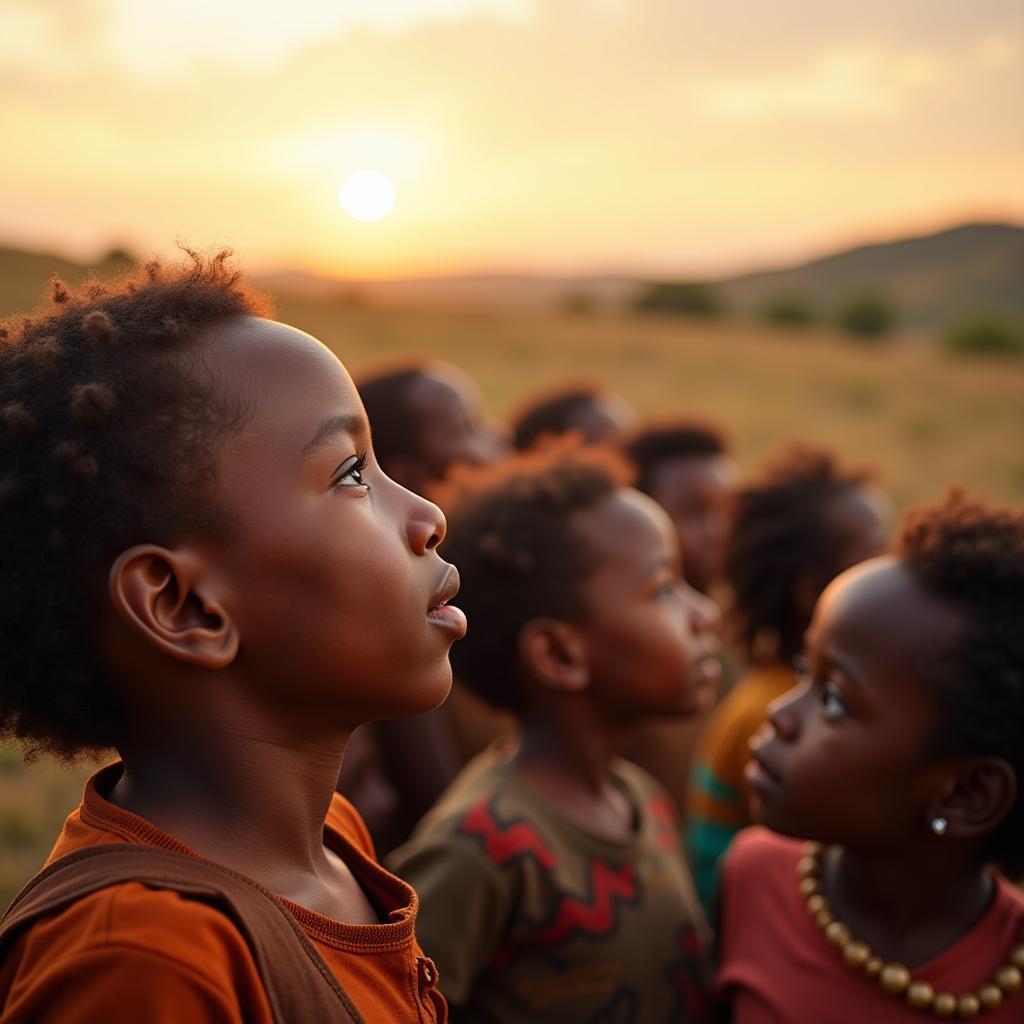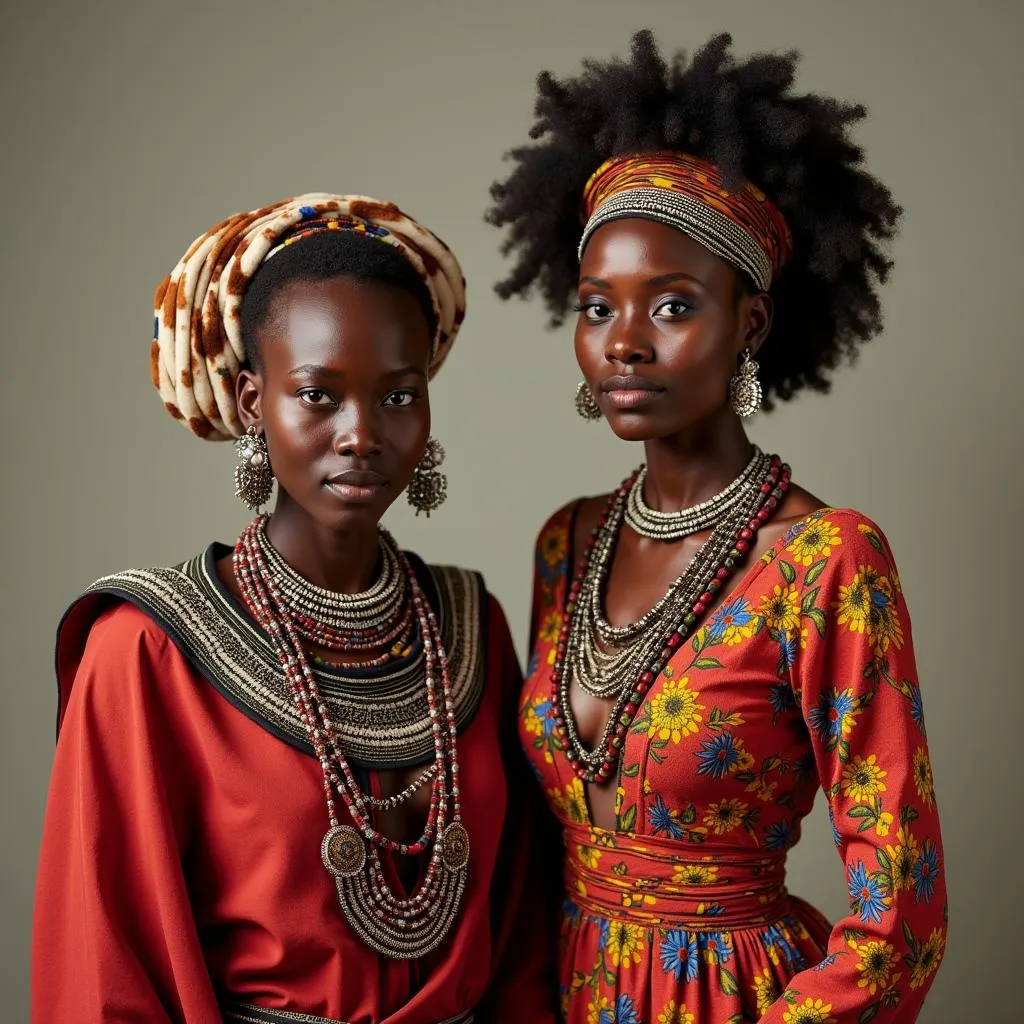Understanding the African Child: A Journey Through Culture, Challenges, and Hopes
The African child, full of potential and resilience, faces a unique set of circumstances shaped by rich cultural heritage and socio-economic realities. This article delves into the diverse world of the African child, exploring their upbringing, education, challenges, and the unwavering hope that defines their future.
The Rich Tapestry of Culture and Upbringing
Across the vast continent of Africa, diverse cultures weave a vibrant tapestry of traditions and customs that profoundly influence a child’s upbringing. From the storytelling traditions of West Africa to the close-knit communities of East Africa, each region offers a unique perspective on childhood. Family plays a central role, with extended family members often actively involved in raising children, fostering a strong sense of belonging and shared responsibility. These communal values shape the African child’s understanding of community and interdependence.
Traditional values are often emphasized, including respect for elders, strong work ethic, and a deep connection to their ancestral heritage. These values provide a foundation for their identity and help them navigate the complexities of life. Music and dance are integral to many African cultures and are often used as tools for education, storytelling, and social bonding. The African child grows up immersed in these artistic expressions, which nurture their creativity and cultural identity.
 African Children Engaging in Traditional Games
African Children Engaging in Traditional Games
Education and Opportunities for the African Child
Access to quality education remains a significant challenge for many African children. While progress has been made in increasing enrollment rates, disparities persist across regions and within countries. Factors such as poverty, conflict, and limited infrastructure contribute to these inequalities. Many children, especially in rural areas, face long distances to school, inadequate learning resources, and a shortage of qualified teachers.
Despite these challenges, there is a growing recognition of the importance of education in empowering the African child. Numerous initiatives are underway to improve access to quality education, including building new schools, training teachers, and providing scholarships. Technology is also playing an increasingly important role in bridging the educational gap, with online learning platforms and mobile learning initiatives offering new opportunities for children in remote areas.
 African Child Learning in a Classroom Setting
African Child Learning in a Classroom Setting
Challenges and Resilience of the African Child
African children face a myriad of challenges, including poverty, malnutrition, disease, and conflict. These challenges can have a profound impact on their physical and emotional well-being, hindering their development and limiting their opportunities. Child labor and child marriage are also pressing concerns in some regions, robbing children of their childhood and jeopardizing their future.
Despite these adversities, the African child demonstrates remarkable resilience and strength. Their ability to adapt and overcome challenges is a testament to their spirit and the supportive communities that surround them. Many organizations and individuals are working tirelessly to address these challenges and create a brighter future for African children, providing essential services such as healthcare, nutrition support, and psychosocial care.
A Future Filled with Hope: Investing in the African Child
The future of Africa rests on the shoulders of its children. Investing in their education, health, and well-being is crucial for the continent’s development and prosperity. By providing them with the necessary tools and opportunities, we can empower them to reach their full potential and become agents of change in their communities. Supporting initiatives that promote child rights, protect vulnerable children, and foster inclusive development is essential to ensuring a brighter future for all African children.
 African Children Looking Towards a Bright Future
African Children Looking Towards a Bright Future
In conclusion, the African child represents a vibrant tapestry of cultures, resilience, and hope. By addressing the challenges they face and investing in their future, we can unlock their immense potential and pave the way for a more prosperous and equitable Africa.
FAQ
- What are some common cultural practices in raising an African child?
- How can I support educational initiatives for African children?
- What are the major challenges facing African children today?
- What organizations are working to improve the lives of African children?
- How can I get involved in helping African children?
- What are some successful initiatives that have empowered African children?
- What are the long-term impacts of investing in the African child?
For further support, please contact us: Phone: +255768904061, Email: [email protected] or visit us at: Mbarali DC Mawindi, Kangaga, Tanzania. We have a 24/7 customer service team.



